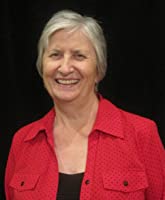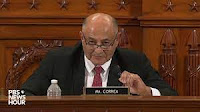Alex Schadenberg
Executive Director, Euthanasia Prevention Coalition
 |
| Alexander Raikin |
In 2020, Jane, a 29-year-old Colorado woman with eating disorders, was “provided with lethal drugs … in the midst of a mental-health crisis”, according to a lawsuit filed this year by the Institute for Patients’ Rights, an advocacy group seeking to overturn Colorado’s assisted-suicide program. Jane qualified for assisted suicide, the lawsuit contends, yet she was discharged from a hospice because she no longer qualified for hospice care, and her hospice considered her no longer competent to consent to medical treatments. So how could she have consented to suicide-by-doctor?Raikin states that Jane’s case isn’t unusual and violations of assisted-suicide laws are rampant with no known suspensions or revocations of clinician licenses, even when patients were endangered. Raikin explains how these laws are being violated:
Jane was fortunate: her parents successfully sued for guardianship, and a court ordered the medication to be destroyed. Jane “went on to recover from all of it, including her anorexia”, according to Matt Vallière, the executive director of the Institute for Patients’ Rights. Jane found work as an occupational therapist, went on vacation, and even purchased a home. Although she ultimately died two years later of complications from her history of eating disorders, she’d had an opportunity to “live her best life”, Vallière says. That any medical professional decided that Jane qualified for assisted suicide, he claims, was “absurd”.
Much of the issue is oversight. In each of the 11 states that have implemented suicide-by-doctor, regulations require clinicians to submit compliance forms, typically within days of a patient’s death. These forms document that the patient expressly consented to die through assisted suicide, and that the clinicians followed all necessary legal safeguards and eligibility criteria, including affirming that the patient is terminally ill and of sound mind.The actual number of assisted suicide deaths is unknown. Raikin writes:
Failure to submit this documentation isn’t just a statutory offense. Medical providers and pharmacists who fail to “make a good-faith effort to file required documentation in a complete and timely manner”, as Washington state law instructs, risk losing“immunity protection” for the criminal act of assisting someone’s suicide. Yet a Department of Health report found that physicians improperly reported compliance for a third of all assisted suicide deaths in the Evergreen State. Indeed, Washington is missing 515 compliance forms entirely for the period between 2009 to 2023, according to my calculations based on annual reports, and is also short of 293 “written request” documents that patients are required to sign attesting that they wish to die by suicide. In Colorado, my calculations find that almost 1,800 compliance forms have remained missing since 2017.
States can’t answer the most basic question: how many physician-assisted suicides have been facilitated by clinicians in America? Across Colorado and California, state authorities have no record of the type of “aid-in-dying drugs” that were prescribed to more than 1,000 patients, according to my analysis of state reports, including the California End of Life Option Act 2024 Data Report. In Oregon, the health authority has records on 376 assisted suicides completed in 2024, but for another 178 cases in which medications were prescribed, authorities don’t know if the patient died by ingesting the drugs, or even died at all.Washington State has decided to stop publishing the assisted suicide data.
In 2022, Washington state announced that its Department of Health is diverting “all available funding” for its assisted-suicide compliance-review program to “data entry of submitted forms”, due to lack of funding from the state. Data entry is commendable. But by law, the state is also required to “review” reporting compliance and issue an annual report. Instead, this summer, a pop-up appeared on the department’s website: “Important Note: Due to funding cuts, the Death with Dignity Program at the Department of Health is suspended. … A 2024 annual statistical report will not be released.”
Washington state’s decision surprised even assisted-suicide clinicians. Jessica Kaan, the medical director for End of Life Washington, an institution which facilitates assisted suicides in the state, warned on a forum for providers that “no one will even be monitoring or responding to emails or phone calls that come into the DOH [Department of Health] about the DWD [Dying With Dignity] program”. Kaan called it “a grim situation”. After this push back, the state announced that it will release the 2024 report after all — but it will be the last one ever to be released.Raikin then explains that New Mexico does not publish an annual report, even though the assisted suicide law requires an annual report. States are also removing the "safeguards" in the law. Raikin explains:
This systematic disregard of safeguards is happening as the process is being fast-tracked: states are removing requirements that applicants reside in state; allowing less-credentialed providers, such as social workers, nurses, and physician associates,to perform assessments instead of psychiatrists and psychologists; and reducing minimum waiting periods. In Oregon, which waived waiting periods in 2020,clinicians have reported in Oregon’s annual Death with Dignity Act report that assisted suicides routinely occur on the same or next day the patient makes there quest. Since in some cases it takes up to five days for a patient to die from ingesting the death cocktail, it is possible that it will take a patient longer to die than to receive lethal prescriptions.The proportion of vulnerable persons dying by assisted suicide has also increased. Raikin writes:
The proportion of deaths of vulnerable patients has also increased by magnitudes. In the first year of Washington state’s program, 16% of patients mentioned “the physical or emotional burden on family, friends, or caregivers” as a reason for their decision to die, and 2% were concerned about “the financial cost of treating or prolonging the patient’s terminal condition”. By 2023, according to the state’s reporting, the number concerned with “feeling like a burden” jumped to half of all assisted-suicide deaths, and a 10th were concerned about “financial implications of treatment”.Compliance with the law from physicians and the government is lacking. Raikin interviewed Craig New who overseas the assisted suicide program in Oregon. Raikin reports:
A similar trend is unfolding in Oregon. In 2009, the first year that the program was available, no patients told their assisted-suicide clinician that they were choosing to die because of financial concerns, and only 12% felt like a burden. By 2024, the state’s reporting revealed that it was 9% and 42% of all assisted suicide deaths, respectively. No other states even report this data. The “attending physician follow-up form” in California, which records patient concerns that contribute to the choice of “aid-in-dying”, doesn’t have “financial concerns” or “feeling like a burden” on its otherwise identical menu of options.
Craig New, who told me on the telephone that he’s the sole employee of the Oregon Health Authority responsible for monitoring compliance reporting, says that “ultimately the things usually get resolved because we bug them until they finally send in the paperwork”,but even so, his office has reported around a dozen physicians to the Oregon Medical Board for violations of compliance reporting. Thanks to privacy laws regarding medical licensing, it is impossible to know whether the reported physicians faced repercussions, but my review of the Oregon Medical Board’s investigations reveals that few offenses are prosecuted.Raikin reports that Dr Rose Jeanine Kenny, in Oregon, was reprimanded by the Oregon Medical Board for contravening the assisted suicide law:
One example is Rose Jeannine Kenny, a family doctor, who in 2016 was sentenced to five years probation by the Oregon Medical Board for dozens of alleged prescription violations. Later the board received “credible information” that Kenny may have again violated the same provisions she was previously reprimanded for, and may possibly have committed “violations of the Oregon Death with Dignity Act”, such as failure to ensure consent, follow the rules of written and oral assisted suicide requests, abide by the minimum waiting period, and file compliance records. Kenny once again kept her license, this time by agreeing to “participate in all physician steps” for 10 more assisted suicides, supervised by a mentoring physician from Compassion & Choices — the largest lobbying group for assisted suicide in the United States. (UnHerd was unable to reach Dr. Kenny at any of the medical practices with which she is associated online.)Raikin states that no researchers or law enforcement are allowed to systematically review the assisted suicide records. He then tells the story of a person in Maryland with a eating distorder:
Recent court proceedings in Maryland eerily echo the lawsuit regarding Jane. Angela Guarda, the director of the Eating Disorders Program at Johns Hopkins Hospital, testified that she was contacted by an ex-patient of Jennifer Gaudiani, the physician who coined the term “terminal anorexia”, and who has prescribed assisted-suicide medication to at least one patient. The concept of terminal anorexia was meant to apply only to patients over age 30; for younger patients, Gaudiani stressed in a paper for the Journal of Eating Disorders that “every effort should be made to promote full recovery and continuation of life”.Raikin ends the article by stating:
The ex-patient reported that her assisted-suicide assessor told her “she would ‘make an exception’ for me and ‘allow’ me to die”. The patient reported feeling coerced. She eventually weaned herself off morphine and hospice drugs and, 18 months later, reports that she’s doing well, with a job, a group of friends and a new puppy.
Patients like these, who need hope the most, are facing much more than their illnesses. They also confront an assisted-suicide regime that blatantly and routinely violates the legal safeguards that were meant to ensure their protection from a death they might not want.
Further articles on this topic:
- Assisted suicide lobby launches court case to force Colorado to permit suicide tourism (Link).
- The push to legalize and extend assisted suicide in America (Link).
- Oregon 2024 assisted suicide report (Link).
- Death by assisted suicide is not what you think it is (Link).
- Assisted suicide laws, once passed will inevitably expand (Link).
- New York assisted suicide bill is a "bait and switch" (Link).
- Oregon bill would expand assisted suicide again (Link).























